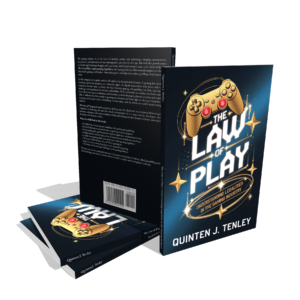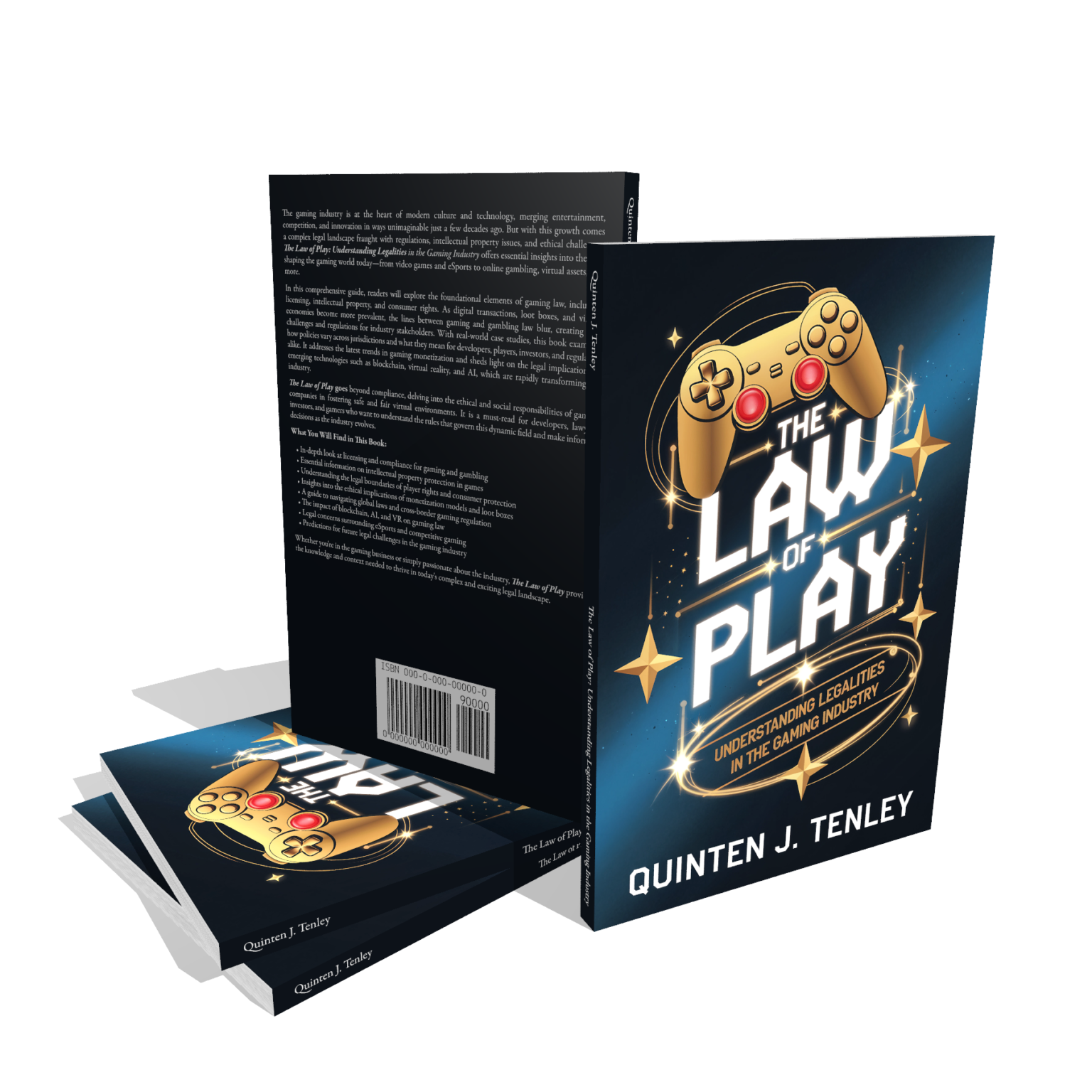Gaming Law Made Simple – Complete Legal Guide for Game Developers and Industry Professionals

Understanding gaming law has never been more critical for developers and industry professionals navigating the complex legal landscape of interactive entertainment. Whether you’re an indie developer launching your first mobile game or a seasoned studio executive, the intricate web of gaming regulations, intellectual property rights, and compliance requirements can feel overwhelming. “The Law of Play: Understanding Legalities in the Gaming Industry” cuts through the legal jargon to provide practical, actionable guidance that protects your creative work and business interests.
This comprehensive gaming industry legal guide addresses everything from GDPR compliance and age rating requirements to licensing agreements and monetization strategies. Unlike expensive legal consultations or dense academic texts, this ebook delivers real-world solutions in accessible language that busy professionals can immediately implement in their projects.
What You’ll Discover
- Essential Gaming Compliance Frameworks: Master the fundamental legal requirements for launching games across different platforms and jurisdictions
- Intellectual Property Protection Strategies: Learn to safeguard your creative assets, understand fair use, and navigate copyright challenges in game development
- International Gaming Regulations: Discover how to comply with diverse legal requirements across global markets including ESRB, PEGI, and regional content standards
- Monetization Legal Best Practices: Overcome common pitfalls with in-app purchases, loot boxes, subscription models, and advertising regulations
- Privacy and Data Protection Mastery: Navigate GDPR, CCPA, and emerging privacy laws that impact player data collection and processing
- Contract Negotiation Excellence: Transform your understanding of publishing agreements, licensing deals, and employment contracts in the gaming industry
Why This Book Matters
The gaming industry generates over $180 billion annually, yet many developers and professionals lack crucial legal knowledge that protects their investments and careers. This gaming law guide bridges that gap by translating complex legal concepts into practical strategies you can implement immediately. Whether you’re dealing with platform submission requirements, international distribution challenges, or employment law issues, this resource provides the clarity and confidence you need to make informed decisions.
Written by industry experts with decades of combined experience in interactive entertainment law, this guide serves as your personal legal advisor without the hefty consultation fees. Every chapter includes real-world case studies, actionable checklists, and step-by-step implementation guides that transform legal theory into business success.
Key Features
This comprehensive ebook spans 12 detailed chapters covering every aspect of gaming industry legalities. Available as an instant digital download, you’ll receive immediate access to practical templates, compliance checklists, and contract review guides. The format allows for easy reading on any device, with printable legal checklists for hands-on reference during negotiations and compliance reviews. Also available as audiobook on Google Play Books and Spotify for convenient listening during commutes or while working on development projects.
Frequently Asked Questions
Is this gaming law guide suitable for indie developers with limited legal budgets?
Absolutely! This book was specifically designed for independent developers and small studios who need practical legal guidance without expensive attorney fees. Each chapter includes cost-effective solutions and DIY templates that help you handle common legal challenges independently while knowing when professional consultation is truly necessary.
Does this cover international gaming regulations and global distribution requirements?
Yes, comprehensive coverage includes major international markets including EU GDPR requirements, US state regulations, Asian market compliance, and platform-specific legal requirements for Steam, Apple App Store, Google Play, and console platforms. You’ll understand how to navigate age rating systems, content restrictions, and data protection laws across different jurisdictions.
Will this help with understanding esports and streaming legal issues?
The guide covers emerging areas of gaming law including esports tournament regulations, streaming platform compliance, influencer partnerships, and content creator legal considerations. You’ll learn about tournament rules, player contracts, broadcast rights, and the evolving legal landscape of competitive gaming.
Get Your Copy Today
Transform your understanding of gaming industry legalities with this comprehensive guide. Available for instant download at just $6.99, this ebook provides exceptional value compared to expensive legal consultations or specialized law courses. Also available as audiobook on Google Play Books and Spotify for convenient learning during your daily routine. Purchase your copy through all major ebook retailers including Apple Books, Barnes & Noble, and Kobo to begin protecting your gaming projects and advancing your career with confidence today.
Watch the Video Review

